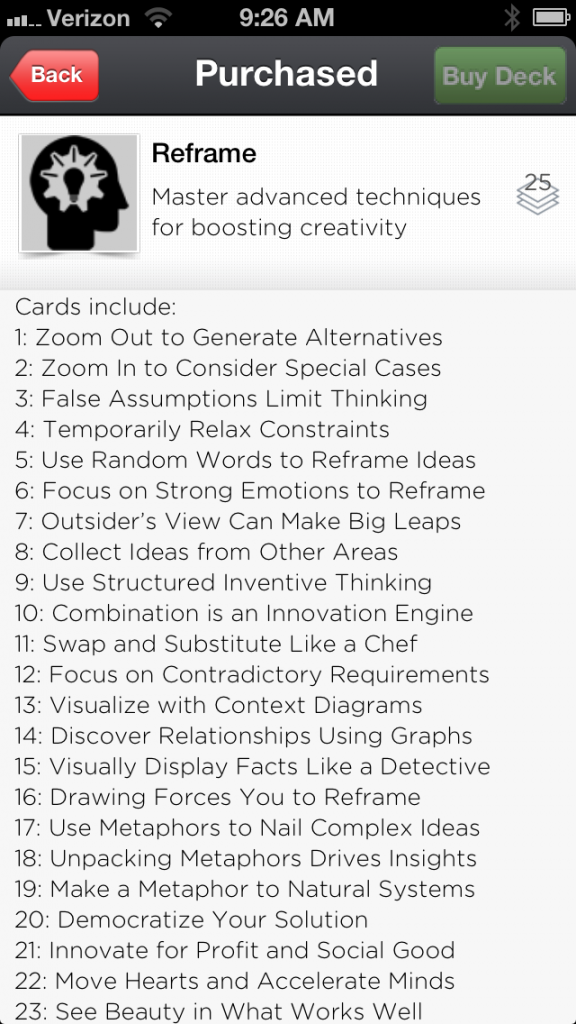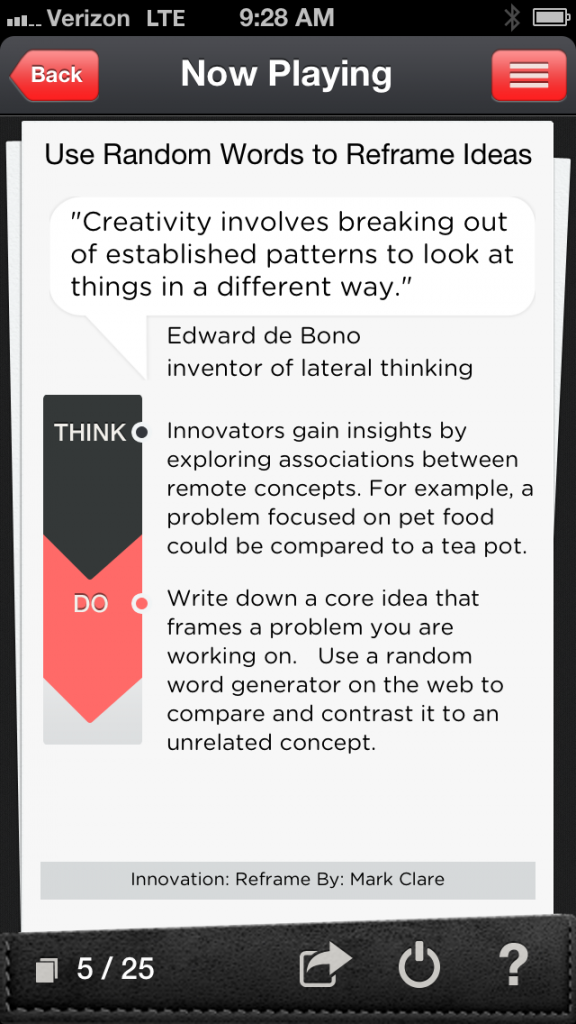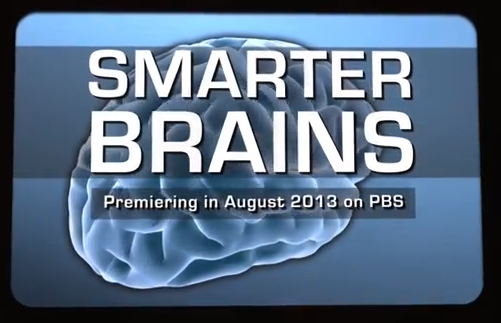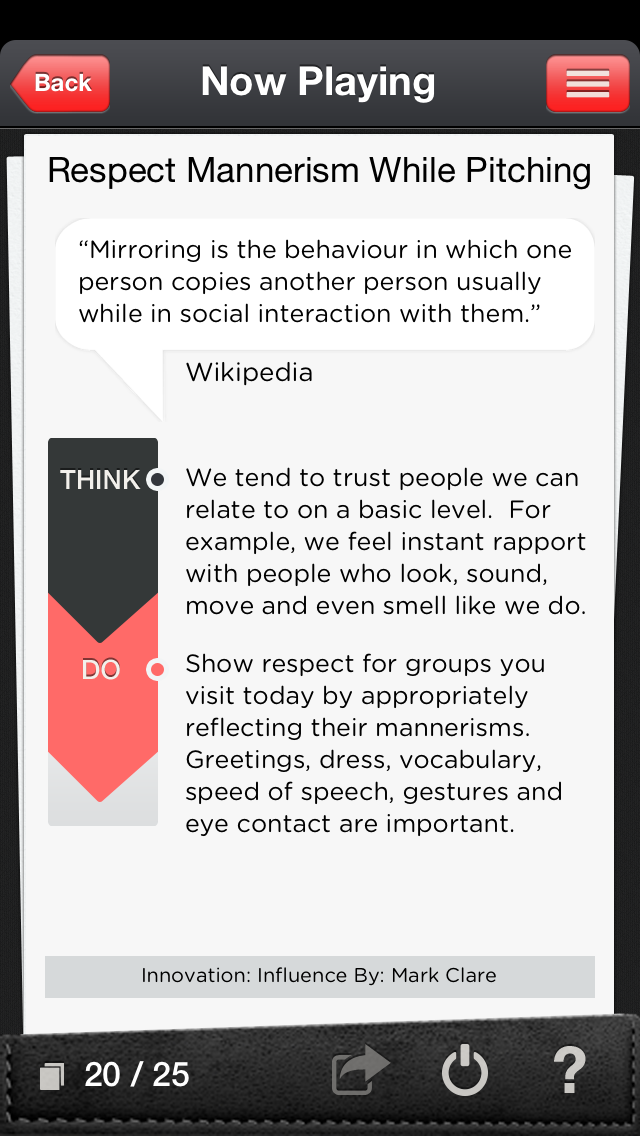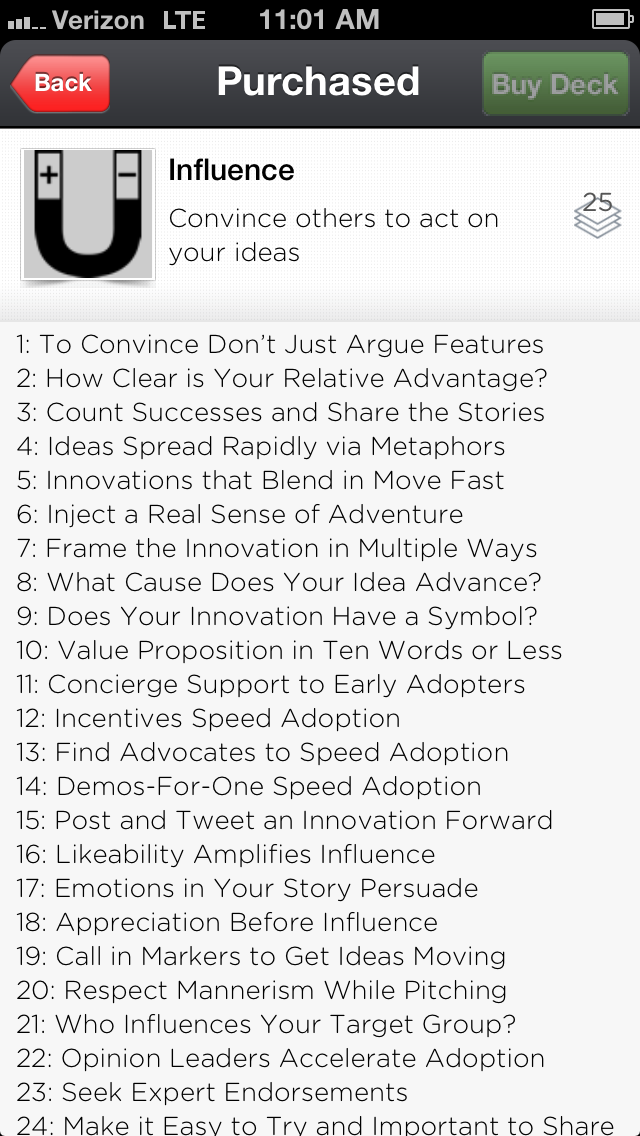A Placebo for Cognitive Enhancement?
In the Next Brain blog we report on research that suggests how we think about our own mental abilities has a significant impact on how well we perform. For example, in Perception of Age Impacts Cognitive Performance, we reported on a study that shows simply “thinking that you are old” will impact your score on a dementia test.
 Self-image, especially as it relates to what we believe we know, might be a powerful placebo for cognitive performance. More evidence comes from Your Thinking can Release Abilities Beyond Normal Limits, in The Scientific American. The article reviews an experiment that shows if you expect to know the answer to a question you tend to score better.
Self-image, especially as it relates to what we believe we know, might be a powerful placebo for cognitive performance. More evidence comes from Your Thinking can Release Abilities Beyond Normal Limits, in The Scientific American. The article reviews an experiment that shows if you expect to know the answer to a question you tend to score better.
Such results suggest (but by no means prove) that confidence, positive thinking, a growth mindset and affirmation could have a significant impact on memory, learning, creativity, visual acuity and a wide-range of cognitive performances.
This is a good news. It does not take too much effort to develop a positive affirmation about our mental abilities and then repeat it on a regular basis. For example, when struggling with a hard problem you could regularly repeat: “As I have in the past, I will see the answer to this problem”. You could even combine the affirmation with a ritual such as sitting in your creative chair or wearing your lucky shirt.
I am interested to hear from readers that have examples of placebos for cognitive performance.
Categories: Lifestyle, Mental Focus, Problem Solving Tags:
Assess Your Practical Creativity in 3 Minutes
Mind Tools has developed a 16-question creativity test you can complete in about 3 minutes. Not only does it give you an overall creativity score and rank, but you get a question by question analysis and suggestions for how to improve.
I have built some of the best techniques for improving creativity into NewHabits, a free iPhone and iPad app. Once you download the app, tap the store tab and check out Reframe, a deck of knowledge cards designed to help you master advanced creativity techniques.
There are a total of 25 cards. Play a card daily from your mobile device to experiment with and eventually master a proven creativity technique. Cards are designed to fit into everyday routines and take minutes to use. The Reframe cards work by converting general advice and complex how-to knowledge about creativity into right-sized chunks that are optimized for how we learn from experience.
A list of the Refram cards and an example are shown below.
Categories: Problem Solving, Software Tags:
Can Blue Light Boost Your Mood and Alertness?
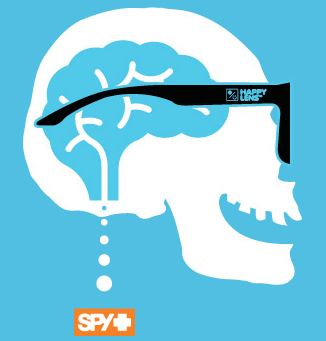 SPY has modified premium quality sunglasses to allow long-wave blue light to pass into your eyes in the hopes of creating a positive mood. The SPY Happy Lens Technology is designed to:
SPY has modified premium quality sunglasses to allow long-wave blue light to pass into your eyes in the hopes of creating a positive mood. The SPY Happy Lens Technology is designed to:
“harmonize” with the body’s physiological preference for a specific color transmission, optimized through the important wavelengths between 450 and 500 nanometers, where the “uplifting” effects of blue (“happy”) light are most prevalent.”
While there is some evidence that this can work the product is new to the market. Cost is in the $150-$200 range and glasses are available in a variety of styles and come with a guarantee.
Click on the image to watch a video on how they work.
Interested to hear from readers that wear happy glasses.
Categories: Mental Focus Tags:
More Evidence that Chocolate is Good for the Brain
 A recent study demonstrated that two cups of hot cocoa a day for a month improved brain health and thinking skills in the elderly. The study included 60 people who on average were in there 70s. Those participants with impaired blood flow showed an 8.3% percent improvement in blood flow and a 31% improvement in response time on a working memory test.
A recent study demonstrated that two cups of hot cocoa a day for a month improved brain health and thinking skills in the elderly. The study included 60 people who on average were in there 70s. Those participants with impaired blood flow showed an 8.3% percent improvement in blood flow and a 31% improvement in response time on a working memory test.
In more technical terms:
There is a strong correlation between neurovascular coupling and cognitive function, and both can be improved by regular cocoa consumption in individuals with baseline impairments. Better neurovascular coupling is also associated with greater white matter structural integrity.
Neurovascular coupling refers to the link between brain activity and the amount of cerebral blood flow. Better blood flow, better thinking. This is a new finding.
Participants consumed no other chocolate during the test.
Categories: Cognitive Decline, Diet, Memory and Learning, Older Adult Tags:
Use Your Body to Boost Mental Performance
 Cognition is embodied. That is, how well you think and learn is in part controlled by how you use your body. We have covered many examples of how this works in the Next Brain Blog including stepping back for better emotional control, talking with your hands, thinking by walking around, posture effects (e.g. folding your arms) and short-duration physical activities interspersed with study.
Cognition is embodied. That is, how well you think and learn is in part controlled by how you use your body. We have covered many examples of how this works in the Next Brain Blog including stepping back for better emotional control, talking with your hands, thinking by walking around, posture effects (e.g. folding your arms) and short-duration physical activities interspersed with study.
See Use Your Body to Improve Thinking Instantly for more details.
Now the PsyBlog offers an excellent summary in 8 Easy Bodily Actions that Transform Mental Performance. These include for example, how using a deep voice can improve abstract thinking, a power stance can improve your sense of control, and just imaging yourself walking towards an important person or object can increase a sense of mastery.
Some of these are new to me and I am actively experimenting with them. Interested to hear from readers that have tried them out.
Categories: Lifestyle, Manage Emotions, Memory and Learning, Mental Focus, Problem Solving, Training Tags:
Free Test for Alzheimer’s Related Memory Loss
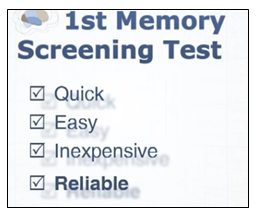 As we age our memory changes. Sometimes it is hard to know if your experiences are natural “senior moments” or early warning signs of serious memory problems such as those related to dementia, mild cognitive impairment or early Alzheimer’s disease. MemTrax was developed to help address this issue. It is a simple visual memory test you can take in 1-4 minutes. Your score is easy to understand and if you take the test on a regular basis, say every month, you can see how it changes over time.
As we age our memory changes. Sometimes it is hard to know if your experiences are natural “senior moments” or early warning signs of serious memory problems such as those related to dementia, mild cognitive impairment or early Alzheimer’s disease. MemTrax was developed to help address this issue. It is a simple visual memory test you can take in 1-4 minutes. Your score is easy to understand and if you take the test on a regular basis, say every month, you can see how it changes over time.
The initial test is free and you can see how it works in this demo. You can take the test on from your computer, iPhone or iPad.
I am interested to hear from readers that use MemTrax or other instruments that screen for neurodegenerative memory decline.
Categories: Cognitive Decline, Memory and Learning, Older Adult, Software Tags:
14 Tasty Recipes With Brain Enhancing Ingredients
 The AARP has an excellent article on brain boosting foods. It covers 14 recipes ranging from pecan cranberry and orange muffins to an asparagus, mushroom and ham quiche with a potato crust. You get a full recipe for each dish as well as a brief explanation of the brain enhancing ingredients.
The AARP has an excellent article on brain boosting foods. It covers 14 recipes ranging from pecan cranberry and orange muffins to an asparagus, mushroom and ham quiche with a potato crust. You get a full recipe for each dish as well as a brief explanation of the brain enhancing ingredients.
The information comes directly from the book, ThinkFood: Brain Healthy Recipes. The AARP worked with Posit Science to collect ideas from 50 renown food bloggers. Unfortunately, the book is currently unavailable. I am interested to hear from readers that have a copy and want to share their favorite recipe.
Categories: Books, Cognitive Development, Diet Tags:
Categories: Cognitive Development, Diet, IQ and EQ, Lifestyle, Training Tags:
Innovators are Influencers
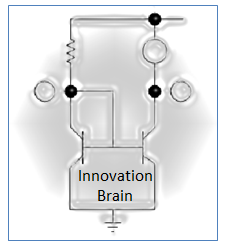 There is a lot of interest in getting better at innovation these days. While much of the focus is on creativity skill, a broader view indicates there are four areas you need to cultivate to build your innovation brain. These include:
There is a lot of interest in getting better at innovation these days. While much of the focus is on creativity skill, a broader view indicates there are four areas you need to cultivate to build your innovation brain. These include:
- Find or energize an innovation calling
- Reframe thinking to go in new directions
- Learn rapidly and deeply from experience
- Influence others to adopt new practices.
Surprisingly, the topic of influence seems to get the least attention. Innovators must convince others to invest time and resources in their raw ideas, persuade early adopters to try out prototypes and spend tremendous energy getting others to change behavior in order to grow a user base. Influence is a key to all phases of innovation.
There are many excellent books on how to get better at positive influence. Two of my favorites are the Influencer now in a second edition and How to Get People to Do Stuff. The Influencer advocates a focus on vital behaviors and provides a broad framework for crafting influence strategies. Get People to Do Stuff zeros in on the seven sources of motivation and provides very specific suggestions. For example:
“If you use nouns when making a request, rather than verbs – for example: “Be a donor” versus “Donate now” – it results in more people taking action. That’s because nouns invoke group identity.”
A careful read of both books reveals that they are recommending many of the same ideas. Indeed, I recently completed a review of over a dozen of the best books on influence and found they have five common themes and offer 25 best practices. The themes most relevant for innovators include:
- Craft compelling messages and stories
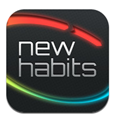
- Provide extra support to early adopters
- Be authentic, likeable & appreciative
- Master the five factors of innovation diffusion
- Leverage opinion leaders and indirect influence.
I’ve documented the 25 best practices as knowledge cards in the NewHabits, a free iPhone and iPad App. You play a card daily to experiment with and eventually master a proven influence technique. Cards are designed to fit into your everyday routine and take minutes to use. Each card is a small-step learning experience that accumulates over time into the habits of highly effective influencers.
An example card and table of contents for the deck is shown below.
Categories: Books, Mental Focus, Problem Solving, Software Tags:
Rules of Mental Engagement
One of the best ways to sharpen your mind is to debate others. Whether you do it formally or informally in written form or verbal form challenging the thinking of another person will give you a good mental work out.
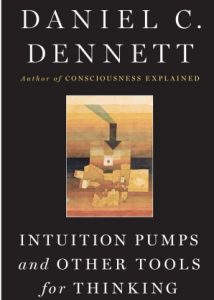 But what are the rules of mental engagement? How can it be done in a civil way that maximizes its brain boosting effects? One of the best suggestions I have seen comes from Daniel Dennett a well-known philosopher in his new book, Intuition Pumps and other Tools for Thinking.
But what are the rules of mental engagement? How can it be done in a civil way that maximizes its brain boosting effects? One of the best suggestions I have seen comes from Daniel Dennett a well-known philosopher in his new book, Intuition Pumps and other Tools for Thinking.
He starts the book with a quote that very much reflects the philosophy of the Next Brain Blog:
“You can’t do much carpentry with your bare hands and you can’t do much thinking with your bare brain.”
His specific suggestion for engaging others is summarized in the section on Rapoport’s Rules and involves a four step process:
- First you summarize the other person’s point and have them confirm that you understand it.
- List all the points you agree with.
- List the new things that you have learned from studying the other person’s position.
- Finally offer an initial criticism or rebuttal.
An excellent way to positively provide feedback and engage others in discussion and debate. It also gives your brain an excellent workout by requiring emotional control, replay, reflection and critical reasoning.
Rapaport’s rules are only one example of the many thinking tools Dennette reviews. I will blog about several others later this month.
Next time you find yourself disagreeing with someone apply Rapaport’s rules and give your brain a workout.
Categories: Ancient Ways, Executive Function Tags:

